{}
Publication Ethics
World Medical Association Declaration of Helsinki (DoH)
| Item | 2013 text (current official) | 2024-draft update* | Practical take-home for researchers |
|---|---|---|---|
| Scope | Medical research on humans, incl. identifiable data & material. | Explicit inclusion of AI-derived data sets & decentralised trials. | Anaesthetists using peri-operative registries must still apply DoH principles even if no direct intervention. |
| Scientific basis | Research must be grounded in robust pre-clinical evidence & systematic review of literature. | Same–plus mandatory trial registration before first patient. | Register audits/quality-improvement studies if they test hypotheses. |
| Ethics review | Independent Research Ethics Committee (REC/IRB) approval required. | Adds REC competence clause & conflict-of-interest disclosure. | South African studies: REC must be NHREC-registered (see §2). |
| Risk–Benefit | Anticipated benefit must outweigh risks; constant re-assessment. | Removes reference to “medical relevance” → stresses social value. | Low-risk analgesic trials still need justification of burden (extra blood draws). |
| Vulnerable groups | Extra justification & benefit for group. | Specifies pregnant women & critically-ill as vulnerable. | ICU anaesthesia studies: show direct benefit or minimal risk. |
| Post-trial access | Participants should access interventions found beneficial. | Draft proposes written post-trial care plan in protocol. | Include how morphine pumps or devices will be supplied after study. |
| Compensation for harm | Mandatory. | Unchanged. | SA requirement: proof of insurance attached to REC submission. |
| *Workgroup draft open for comment June 2024; final revision expected late 2025. |
“Basic Ten”
- Voluntary, written, informed consent (or proxy + child assent).
- Valuable question–cannot be answered otherwise.
- Prior non-clinical/animal data.
- Minimise suffering.
- No expected death/disabling injury.
- Benefit › Risk, reviewed continuously.
- Adequate subject protection/insurance.
- Qualified investigators only.
- Subjects may withdraw anytime
- Investigators must stop the study if harm likely.
South-African Regulatory Framework for Health Research
| Instrument | Key points for exam | Useful link |
|---|---|---|
| National Health Act 61/2003, s71 | Any research involving humans needs written consent & NHREC-registered REC approval. Minors < 18 yr require parental permission + child assent if capable. | doh.gov.za |
| HPCSA Booklet 13 (2023) | Mirrors DoH; adds POPIA compliance, electronic consent guidance, & duty to publish negative results. | hpcsa.co.za |
| NHREC Guidelines 2021 | Risk categorisation: negligible, minimal, high; dictates expedited vs full review. | nhrec.gov.za |
| ICH-GCP E6(R3) 2025 | Major refresh–Quality-by-Design, risk-proportionate monitoring, electronic consent, decentralised trials. Applies to any investigational product trial. | |
| SAHPRA | Device/drug studies need SAHPRA AND REC approval; Section 21 for unregistered products. | sahpra.org.za |
Informed Consent–Essential Elements (checklist)
- Study purpose, methodology & duration.
- Experimental status of interventions (placebo, randomisation, blinding).
- Expected benefits to participant / society.
- Foreseeable risks & discomforts; pregnancy precautions.
- Alternative treatments.
- Compensation, travel reimbursement & insurance cover.
- Confidentiality & data-sharing (POPIA, GDPR if EU data).
- Voluntary nature & right to withdraw without penalty.
- Post-trial care/benefit.
- Contact details for investigators & REC.
- Special populations:
- Children: written parental permission; age-appropriate assent; only if knowledge cannot be gained from adults.
- ICU / incapacitated adults: deferred consent or proxy consent; REC must pre-approve plan; obtain delayed consent if capacity returns.
Plagiarism & Publication Ethics (COPE)
| Type | Definition | Anaesthetic example | Avoidance tip |
|---|---|---|---|
| Complete | Submitting someone else’s paper. | Copying a UK case-series on sugammadex into local journal. | Turnitin check; journal similarity screening. |
| Direct / Verbatim | Word-for-word copying. | Lifting paragraphs from Miller’s Anesthesia into review article. | Quote + cite, or paraphrase + cite. |
| Mosaic | Patch-writing, mixing copied phrases. | Combining snippets from five epidural RCTs. | Rewrite in own words; keep notes. |
| Paraphrasing | Slight re-wording without credit. | Changing synonyms in another author’s abstract. | Always reference original. |
| Source-based | Fabricating or wrong citing. | Citing a BJA paper that never showed stated result. | Cross-check every citation. |
| Self-plagiarism / Salami | Re-publishing own material or slicing one study into many papers. | Two overlaps in “dexmedetomidine audit” conference abstracts. | Declare prior dissemination; combine results. |
| Accidental | Unintentional omission of citations. | Student thesis chapter incorporated into journal ms. | Keep meticulous reference library (Zotero, Mendeley). |
- COPE (Committee on Publication Ethics) flowcharts guide editors on investigations and retractions.
Links
- Statistics
- Study design and analysis
- General Ethics
- Practice management
- Practice guideline
- Impaired capacity
References:
- Health Professions Council of South Africa (HPCSA). (2016). Guidelines for Good Practice in the Health Care Professions.
- World Medical Association. Declaration of Helsinki–Ethical Principles for Medical Research Involving Human Subjects (Oct 2013). wma.net
- World Medical Association. Declaration of Helsinki–2024 Workgroup Draft for Public Comment (June 2024). wma.net
- Health Professions Council of South Africa. General Ethical Guidelines for Health Researchers (Booklet 13). 2023. hpcsa.co.za
- National Health Research Ethics Council. Guidelines for Ethics Committees (2021).
- International Council for Harmonisation. ICH-GCP Guideline E6(R3) (Step 4, Jan 2025). database.ich.orgct-toolkit.ac.uk
- Committee on Publication Ethics (COPE). Guidance on Good Publication Practice (accessed 2025). publicationethics.orgpublicationethics.org
- SAHPRA. Clinical Trial Regulatory Framework (2024).
- Department of Health, South Africa. National Health Act 61 of 2003–s71.
- Shinde SS, Parak SC, Bhati S, Sahay N, Battu GS. Medico-legal and ethical issues in anaesthesiology profession. Indian J Anaesth. 2021 Jan;65(1):54-60. doi: 10.4103/ija.IJA_1476_20. Epub 2021 Jan 20. PMID: 33767504; PMCID: PMC7980236.
Summaries:
Copyright
© 2025 Francois Uys. All Rights Reserved.
id: “d44b4bc4-59da-4cf2-8e39-e85640ca1aa6”



